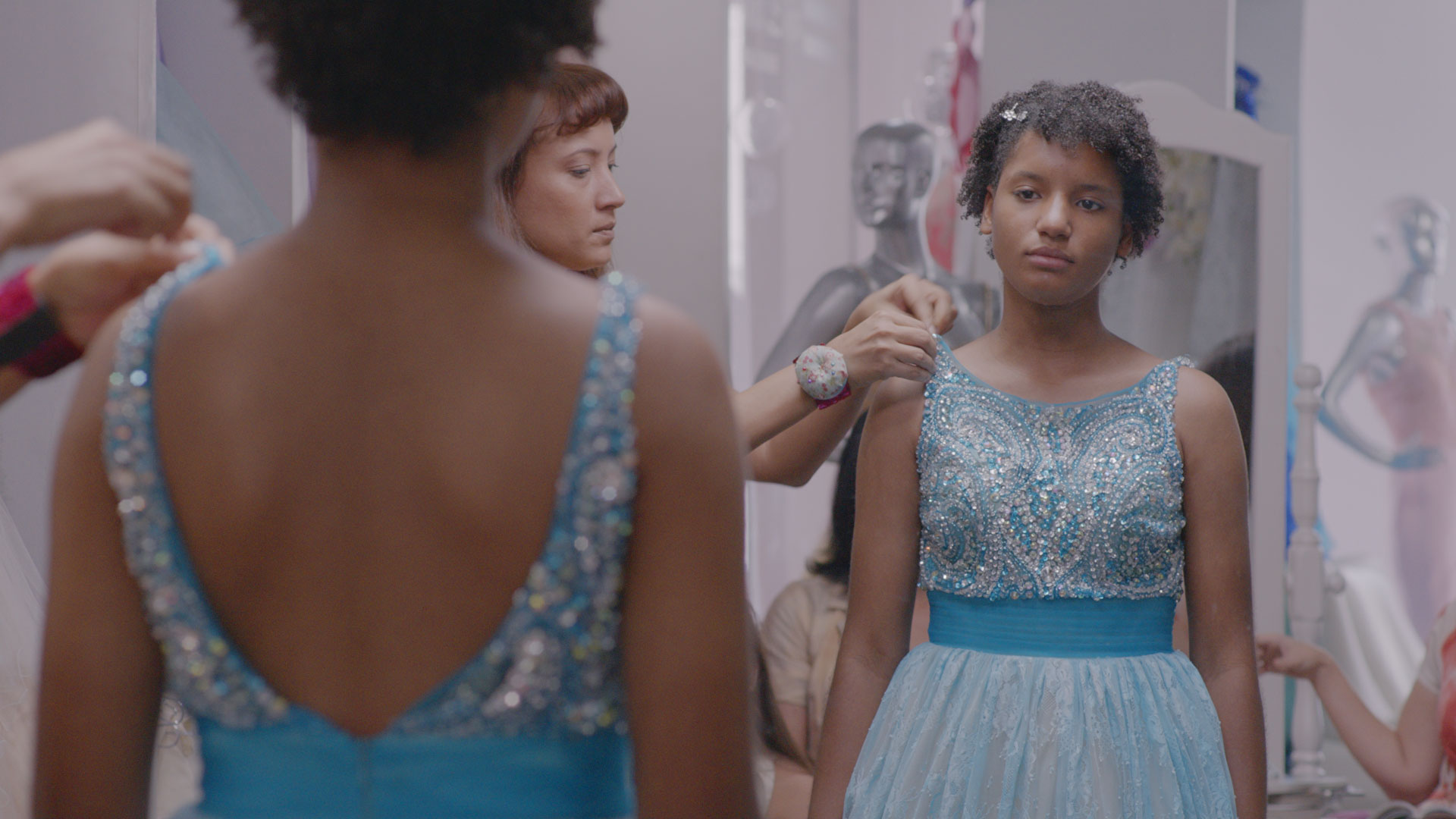Karlovy Vary Film Review: ‘Miriam Lies’
By Guy Lodge
LOS ANGELES (Variety.com) – On the face of it, the plot of “Miriam Lies” is not the stuff of high drama, or indeed drama of any altitude: Held back by her natural shyness and a mounting combination of peer and parental pressure, a 14-year-old girl dithers over whether or not to meet the cute-seeming guy she’s met online, and invite him to her upcoming birthday party. But what in other cultural contexts might play as an episode arc for a Disney Channel sitcom takes on acute tenderness and resonance in Natalia Cabral and Oriol Estrada’s lovely, pensive coming-of-ager: In taking as its subject a biracial teen (played with glowing delicacy by newcomer Dulce Rodríguez) in the Dominican Republic, the film weaves a complex, sensitively examined array of identity crises into the tangle already faced by the average teen-movie protagonist.
Perhaps the most modestly proportioned highlight of this year’s Karlovy Vary competition, Cabral and Estrada’s first narrative feature — following their well-regarded docs “You and Me” and “Sites of Sites” — should go on to a healthy festival run, while its international distribution prospects are enhanced by its dual appeal to both arthouse and youth markets. It’s not hard, in fact, to imagine an enterprising U.S. producer snapping up remake rights to a project with universal appeal and relevance, particularly at a time when Generation Z is leading the call for greater social diversity in screen storytelling. The identity politics in “Miriam Lies” aren’t pronounced, but they aren’t pat, either: The film tacitly invites viewers of all backgrounds to consider what they do and don’t take for granted in the ways they self-identify.
“Did you wash your face? Did you comb your hair?” These questions, fired at young Miriam by her mother Tere (Pachy Méndez) as they prepare to visit a wealthy friend’s house, initially seem like standard maternal fussbudgetry. Yet the longer we observe them, the more these physical nitpicks reveal a deeper sort of shaming: Tere is white, while Miriam is mixed-race: the fruit of a past relationship with a black man (Vicente Santos) that Tere has made every effort to erase from her history. Every outward sign of Miriam’s blackness (her tight natural curls, in particular) is a point of microaggression in a strained mother-daughter relationship, yet Tere isn’t painted as a simple villain. Rather, she’s the anxious product of deeply entrenched, systemic class conflict in the Dominican Republic, a subject carried over from the directors’ nonfiction work.
That Miriam is best friends with upper-class white schoolmate Jennifer (Carolina Rohana) is a source of relief to Tere, as is the girls’ decision to celebrate their quinceañera together with a lavish party at Jennifer’s house. Yet as elaborate preparations for the bash pile up, from expensive dress fittings to absurd choreography lessons, the occasion seems less about Miriam’s coming of age her mother’s coming of class, so to speak. When Jean-Louis, the boy with whom Miriam has been facelessly chatting online and planning to invite as her date, turns out to be black, she panics. Dare she defy Tere’s tacit whitewashing of her own daughter? On principle, of course, the answer is an easy one, yet at 14, with impulses and insecurities at war in her hormonal headspace, Miriam sees nothing so clearly.
Cabral and Estrada’s screenplay unpicks these tricky personal politics with an assuredly light touch, never forcing their flawed, finely drawn characters into overt rhetoric. There’s room amid the larger issues, meanwhile, for a perceptive study of the ebb and flow of young female friendship, carried beautifully by the teenage stars’ open, unaffected performances. Rodríguez is especially impressive, her posture and body language shifting as the weight of Miriam’s unarticulated emotional burden grows.
Bar a couple of quirkily stylized dream sequences — during which the film’s predominantly peachy palette and summery lighting deepen into febrile violets and ruby reds, as if dipping into the colors of Miriam’s id — Cabral and Estrada’s filmmaking stays true to their straightforward documentary roots. Placing complete trust in their cast, the directors and cinematographer Israel Cárdenas really heavily on tight closeups and two-shots, to intimate rather than invasive effect. By the end of this soft caress of a character study, one senses we’ve been scrutinizing Miriam’s face more carefully, and caringly, than anyone else has done in some time.

